08:00 | Conference Registration, Conference Materials Pick-Up, Morning Coffee, Tea and Breakfast Pastries in the Exhibit Hall |
08:40 | 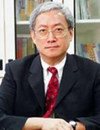 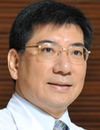 | Keynote Presentation Conference Opening and Welcome from the President of Chang Gung University and President of the Taiwan Precision Medicine Society
Chia-Chu Pao, President, Chang Gung University
Ting-Chang Chang, President, Taiwan Precision Medicine Society, Taiwan
|
|
|
Session Title: Conference Opening Session -- The Deployment of NGs into the Clinic: Challenges and Opportunities |
| |
09:00 |  | Keynote Presentation Lowering the Clinical Adoption Barriers of Next-Generation Sequencing
John Leite, Vice President, Product Marketing and Market Development, Oncology, Illumina, United States of America
Next-generation sequencing has demonstrated tremendous promise in significantly improving outcomes for a number of diseases and improving overall health. We will explore the remaining challenges associated with driving this technology to be a part of standard of care. |
|
09:30 | 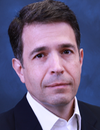 | Keynote Presentation Identifying Non-coding RNA Biomarkers and Therapeutic Agents Through Expression Profiling and Functional Screens
Alexander Pertsemlidis, Associate Professor, The University of Texas Health Science Center at San Antonio, United States of America
To identify non-coding RNAs that regulate tumor cell viability and drug response, we have combined high-throughput screening with expression profiling by NGS and other methods. Candidate targets are validated using qRT-PCR, protein quantification, and luciferase reporter assays. The response of cancer cells to perturbations in candidate ncRNA levels is assessed through flow cytometric analysis of cell cycle phase distribution and through colony formation and caspase activation assays, and validated in mouse xenograft models. We have identified ncRNAs that have significant effects on cell viability and drug response. These ncRNAs have intrinsic value as biomarkers and therapeutic agents, and the vulnerabilities that they uncover can be targeted with pathway-specific perturbations. |
|
10:00 | Biomarker Development and Clinical Practice in Precision Medicine
Sung-Liang Yu, Professor, Department of Clinical Laboratory Sciences and Medical Biotechnology, National Taiwan University College of Medicine, Taiwan
Precision medicine is the trend of modern therapy promoted by United States President, Obama, particularly, the APPLLO Oncology Network has officially gone globally in Jul 2016. According to the cancer therapeutic strategies, we developed two lung cancer prognostic markers for chemotherapy, a 5-gene marker and a 5-microRNA marker that predict survival of patients with non-small cell lung, NSCLC and a 6-CNV marker (copy number variation) that can predict overall and disease-free survivals of patients with EGFR-activating mutation treated with EGFR-TKI. Cancer patients largely may benefit from the development of molecular target therapy and companion diagnosis. Patients avoid inappropriate treatment, adverse effects and poor life quality as well as unsatisfied survival by personalized medicine. We developed a quantification method for gene mutation by DNA mass spectrometry that can detect as low as 1% gene mutations. Based on these assays we establish an ISO15189 certificated reference Lab to provide more than 10,000 clinical services for clinical trials and translational medicine. Recently, we identified the YAP1 R331W as an allele predisposed for lung adenocarcinoma with high familial penetrance. The adjusted Odds Ratio is 6.4 after screening for 3,000 individuals. It is the first germline driver mutation found in Asia. In the middle of 2016, we carried out PT test (proficiency test) of cfDNA for T790M detection which is the first time performed in Asia. The genomic approaches are also applied for other diseases, including colorectal, gastric, ovarian cancer and leukemia. Most importantly, how to reduce the cancer incidence is the critical issue we should try to overcome in the near future. |
10:30 | Coffee and Tea Break with Light Snacks and Visit the Exhibitors |
11:15 |  Technology Spotlight: Technology Spotlight:
Bioinformatics is the Linchpin in Precision Medicine
Pei-Lung Chen, Associate Professor and Attending Physician, National Taiwan University Hospital
Next-generation sequencing (NGS) has become much more affordable, which allows clinical applications of genome-scale data. However, it is now clear that sequencing is only one perspective of a more complex story. In this presentation Dr. Pei-Lung Chen will share the experience in applying NGS to genomic medicine and clinical genetic testing. Dr. Chen will demonstrate how advanced genomics analysis promises better outcome of clinical applications as well as precision medicine.
|
11:45 |  Technology Spotlight: Technology Spotlight:
Pioneering the Path Toward Precision Oncology Through Next-Generation Sequencing
Joe Daniel, Oncology Leader - Asia Pacific and Japan, Thermo Fisher Scientific
We will discuss the design elements and rationale of our Oncomine® Assay product line in the following applications:
- Solid tumor assays for detection of SNVs, indels, CNVs, and gene fusions in a single workflow
- Liquid biopsy assays for cfDNA and CTC analysis
- Immune response assays
|
12:15 | Networking Lunch: Visit Exhibitors and Engage with Fellow Delegates |
13:30 | Translatome Analysis by NGS: Filling the Gap Between Transcriptome and Proteome Results in Biomarker Discovery
Joseph T. Tseng, Associate Professor, National Cheng-Kung University, Taiwan
Ribosome profiling or ribo-seq is a new technique that provide genome-wide information on protein synthesis in vivo, and filled the technological gap existing between our abilities to quantify the transcriptome and the proteome. The applications of ribosome profiling were used to identify the translation start sites, the distribution and the speed of translating ribosome, and to study the effects of microRNAs on translation. This technology already dramatically change our understanding of translational control. In my lab, we have successfully established and modified this technology to get a more high quality data with lower cost. And the translatome result of different kinds of colon polyps were analyzed. From the results, we identity several good biomarkers for further validation and highlight the importance of Ribo-Seq technology in biomarker discovery. |
14:00 |  | Keynote Presentation The Effect of Recent U.S. Supreme Court Rulings on Diagnostics and Precision Medicine Patents
Barbara Rudolph, Partner and IP Lawyer, Finnegan, Henderson, Farabow, Garrett & Dunner, LLP, United States of America
This presentation will focus on developments in United States patent practice. Specifically, it will focus on recent Supreme Court decisions and their effect on the patenting and enforcement of diagnostic technologies and personalized medicine, including patent subject matter eligibility and indirect infringement. The presentation will address these recent trends with a focus on the practical implications of these developments to your everyday practice. |
|
14:30 |  Technology Spotlight: Technology Spotlight:
Real World Data of ctDNA Assay with cSMART Technology for NSCLC in China
Kevin Wang, General Manager, Oncology department, Berry Genomics Corp.
We will share thousand patients’ data of ctDNA assay with cSMART technology for NSCLC. It combined the clinical treatment and molecular data. The data will point out the high sensitive and absolute quantity through cSMART technology.
|
15:00 | Coffee and Tea Break |
15:30 | 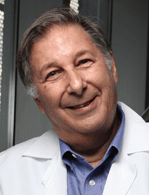 | Keynote Presentation Sensitive and Specific, Multiplex, Real-Time PCR Assays for Assessing the Abundance of Extremely Rare Mutations Associated with Cancer Diagnosis, Prognosis, and Therapy
Fred Kramer, Professor, New Jersey Medical School Rutgers University, United States of America
Real-time multiplex PCR assays are potentially the most rapid, most sensitive, and least expensive way to assess the abundance of mutant DNA fragments present in liquid biopsies; provided that a way is found to selectively amplify rare mutant fragments without amplifying abundant related wild-type fragments; and provided that the amplicons generated from different mutants that occur in the same or an adjacent codon are prevented from forming heteroduplexes that interfere with exponential amplification, obscuring the threshold values of the rarer mutants. “SuperSelective” PCR primers, due to their unique design, are extraordinarily specific, able to selectively initiate the synthesis of amplicons on ten mutant DNA fragments in the presence of 1,000,000 wild-type DNA fragments, even though the only difference between the mutant and the wild-type is a single-nucleotide polymorphism. Moreover, each SuperSelective primer that is specific for a particular mutation possesses a unique 5' tag sequence that is incorporated into the resulting amplicons and detected in real-time by differently colored molecular beacon probes. Each SuperSelective primer specific for a particular mutation also possesses a unique “bridge” sequence that assures that each primer only copies its intended amplicon, and that creates a single-stranded bubble in heteroduplexes that enables the rarest amplicons to be independently exponentially amplified. And finally, the inclusion of primers for a wild-type reference gene fragment, enables the abundance of each type of mutant DNA fragment to be assessed (without measuring the amount of DNA in the sample) by determining the difference between its threshold value and the threshold value of the reference gene. |
|
16:30 | Panel Discussion: The Engagement of Academia and Industry in Moving NGS into the Clinic and Applications
Topics Addressed:
- ctDNA studied using NGS
- NIPT
- Liquid Biopsy Development
- IP Challenges
Panelists: - John Leite, Illumina
- Barbara Rudolph, Finnegan, Henderson, Farabow, Garrett & Dunner, LLP
- Alex Pertsemlidis, UT-Health Sciences Center at San Antonio
- Hui Jiang, BGI
- Kevin Wang, Berry Genomics
- Joe Daniel, ThermoFisher Scientific
- Ting-Chang Chang, President, Taiwan Precision Medicine Society
|
17:30 | Networking Reception with Beer, Wine and Appetizers |
19:00 | Close of Day 1 of the Conference. |










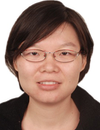
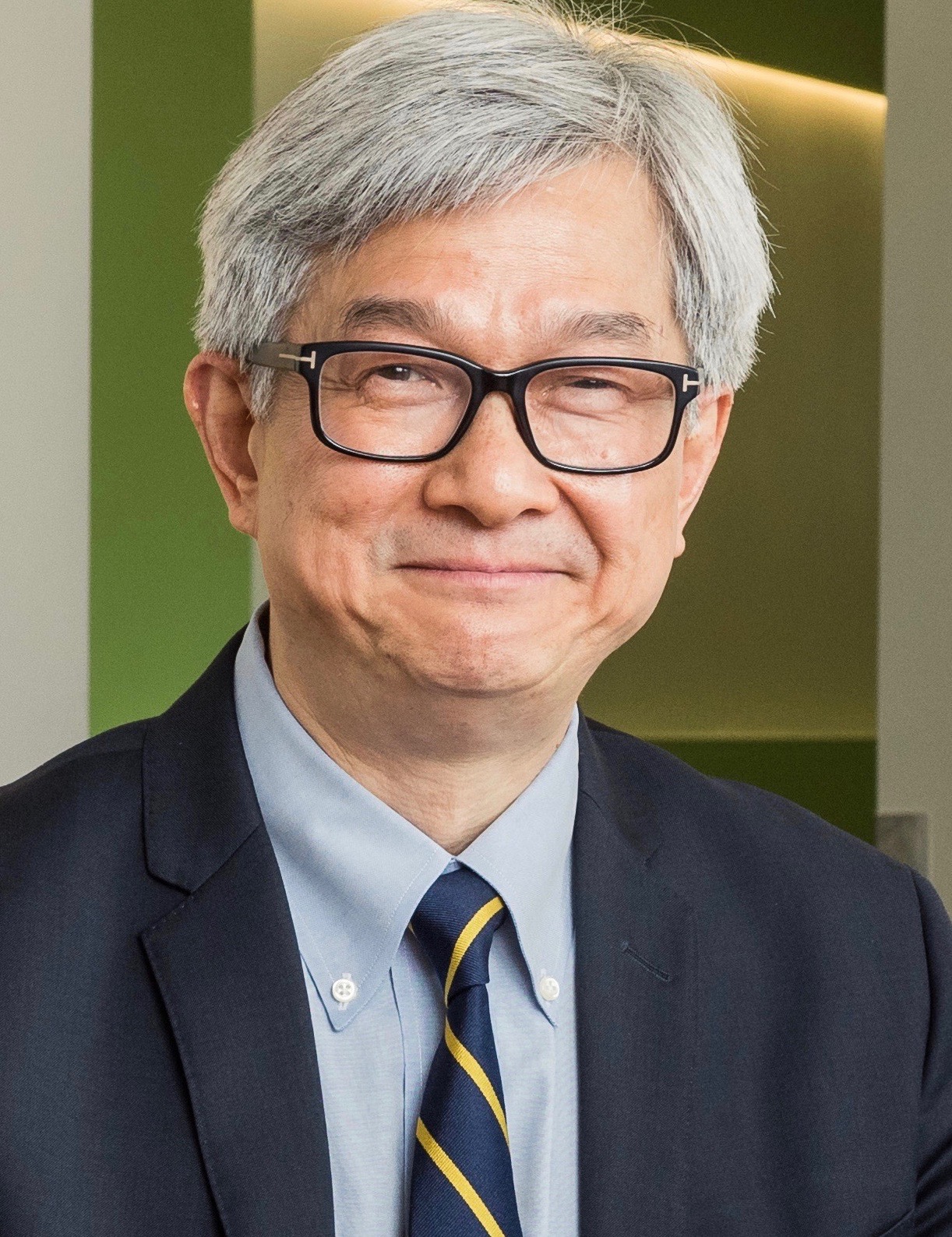
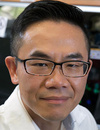
.jpg)
